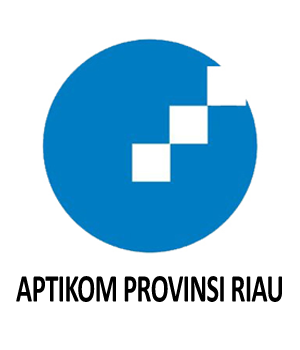PERINGATAN DINI MASA STUDI DAN IPK MAHASISWA BERBASIS FRAMEWORK FOR APPLICATION OF SYSTEM THINKING
Abstract
Universities must graduate students according to the curriculum that has been prepared, no later than 14 semesters, if they cannot be fulfilled, students must drop out. Based on graduation data for the last 3 years data on the number of graduations on time was found to be 60%. This means that this will reduce the achievements set out in the 2015-2020 Strategic Plan. If there is no structured and systematic effort, then there is the potential for graduation with an uncontrolled study period. Unfortunately, until now the system that has been built by PT has not been optimal can encourage students to graduate on time. Attempts to achieve timely graduation can be done by involving all lecturers, students, and academic implementing elements to monitor the academic track record of students since being registered as students. Monitoring of the student's academic track record includes attendance, independent assignments, structured assignments, practical assignments, library visits, consultations with PA, IP, and GPA lecturers. The results of supervision are measured at the minimum standard that must be achieved, by connecting all existing variables it can be concluded that the student can pass on time. The purpose of this study is to identify student track records, to connect with minimum standards that must be achieved, to conduct systems-based analysis so that an estimate of graduation performance is generated. Applications that will be generated are based on Framework for Application of System Thinking (FAST) that is good enough to provide early warning to students to graduate on time, and can monitor and monitor the value of discipline so as to prevent academic violations that affect the study period. FAST can analyze existing problems and can design the system. FAST has eight stages, where the first five stages are the stages of system analysis and the next three stages are the design stages. Applications are supported by means to disseminate information quickly and precisely, to fulfill it, use SMS and e-mail as a medium to transmit information from the system to students and academic advisers. If this application is implemented, it can give a warning to students before academic sanctions are issued.
Downloads
References
Cahyo, P. W. (2018). Klasterisasi Tipe Pembelajar Sebagai Parameter Evaluasi Kualitas Pendidikan Di Perguruan Tinggi. Teknomatika, 11(1), 49–55.
Christin Nandari Dengen, Kusrini, E. T. L. (2019). Penentuan Association Rule Pada Kelulusan Mahasiswa Menggunakan Algoritma Apriori. Jurti, 3(1), 20–29. https://core.ac.uk/download/pdf/268075092.pdf
Gamble, E., Parry-Strong, A., Coppell, K. J., McBain, L., Bingham, L. J., Dutton, L., Tapu-Ta’ala, S., Smith, R. B. W., Howells, J., Metekingi, H., & Krebs, J. D. (2017). Development of a structured diabetes self-management education program specific to the cultural and ethnic population of New Zealand. Nutrition and Dietetics, 74(4), 415–422. https://doi.org/10.1111/1747-0080.12148
Himawan, H., Cahyadi, D., & Munawati, M. (2016). Prototype Sistem Informasi Perhitungan Nilai Poin Pelanggaran Tata Tertib Pada Smk Yuppentek 1 Tangerang. CCIT Journal, 9(3), 336–343. https://doi.org/10.33050/ccit.v9i3.470
Jayakrishnan, M. A. L., Bin Mohamad, A. K., & Yusof, M. B. M. (2018). The holistic view of business intelligence (BI) and big data analytics (BDA) towards designing strategic performance management framework: A case study. Journal of Theoretical and Applied Information Technology, 96(7), 2025–2045.
Karnila, S., & Komputer, F. I. (2016). Perancangan aplikasi berbasis knowledge Management untuk memonitoring prestasi akademik ini difasilitasi interface berupa Aplikasi yang digunakan oleh bagian pengelola. 16(2), 150–159.
Rasyd, R. F., Pradana, F., & Priyambadha, B. (2017). PeringantanDini.pdf. Pengembangan Teknologi Informasi Dan Ilmu Komputer, 1(11), 20–36.
Peraturan Menteri Riset, Teknologi, Dan Pendidikan Tinggi Republik Indonesia, 1 Current Science 1 (2015).
Salmu, S., D., & Solichin, A. (2017). Prediksi Tingkat Kelulusan Mahasiswa Tepat Waktu Menggunakan Naïve Bayes : Studi Kasus UIN Syarif Hidayatullah Jakarta Prediction of Timeliness Graduation of Students Using Naïve Bayes : A Case Study at Islamic State University Syarif Hidayatullah Jakarta. Prosiding Seminar Nasional Multidisiplin Ilmu, April, 701–709.
Saviano, M., Polese, F., & Walletzký, L. (2016). A T-shaped model for rethinking higher education programs. 32(September 2016), 425–440.
This is an open-access article distributed under the terms of the Creative Commons Attribution-ShareAlike 4.0 International License which permits unrestricted use, distribution, and reproduction in any medium. Users are allowed to read, download, copy, distribute, search, or link to full-text articles in this journal without asking by giving appropriate credit, provide a link to the license, and indicate if changes were made. All of the remix, transform, or build upon the material must distribute the contributions under the same license as the original.















